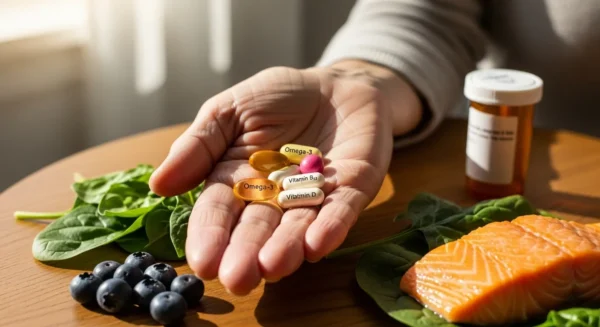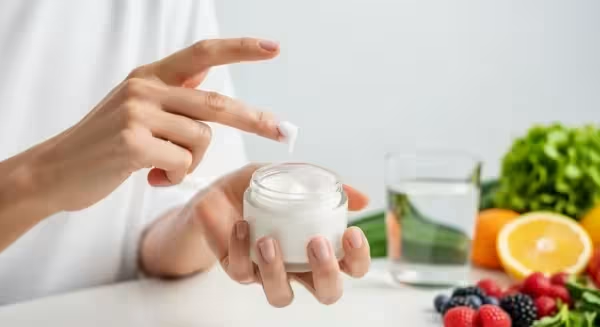
Understanding the Health Benefits (and Any Risks)
As we age, our bodies change in ways that can affect how we absorb and use nutrients. These changes are a normal part of the aging process, but they can make us more susceptible to certain deficiencies. Understanding why you might need a supplement is the first step toward making an informed decision with your healthcare team.
Why Seniors Might Need Supplements
Several factors can contribute to nutritional gaps in older adults:
- Decreased Nutrient Absorption: As we get older, our bodies may produce less stomach acid. This can make it harder to absorb key nutrients like vitamin B12 from food.
- Changes in Appetite and Diet: Some seniors experience a reduced appetite or have difficulty chewing, which can lead to eating less and missing out on essential vitamins and minerals.
- Reduced Sun Exposure: Many older adults spend more time indoors, which limits the skin’s ability to produce Vitamin D from sunlight—a critical vitamin for bone health.
- Medication Interactions: Certain prescription medications can interfere with the body’s ability to absorb or use nutrients. For example, some diuretics can deplete levels of magnesium and potassium.
The Potential Risks of Supplements
While they can be beneficial, it’s vital to be aware of the risks. Unlike prescription drugs, the U.S. Food and Drug Administration (FDA) does not regulate dietary supplements for safety and effectiveness before they are sold. This lack of oversight means you must be a careful consumer.
Potential risks include:
- Toxicity: Taking too much of a supplement can be harmful. This is especially true for fat-soluble vitamins like A, D, E, and K, which are stored in the body and can build up to toxic levels.
- Drug Interactions: This is one of the most significant dangers for seniors. For instance, Vitamin K can interfere with blood-thinning medications like warfarin. St. John’s wort, a popular herbal supplement, can interact with dozens of prescription drugs.
- Contamination: Some supplements have been found to contain unlisted ingredients, including prescription drugs, or contaminants like heavy metals.
- False Claims: Be wary of products that promise to cure diseases or offer quick fixes. If it sounds too good to be true, it probably is.
This is why a conversation with your doctor is not just a suggestion—it’s an essential safety measure. They can help you navigate these risks and ensure that any supplement you take is helping, not hurting, your health.
Important Note for Our Readers: Your health and safety are our highest priorities. The information in this article is for educational purposes only. Please consult with your healthcare provider for personalized medical advice and before making any changes to your health regimen.















